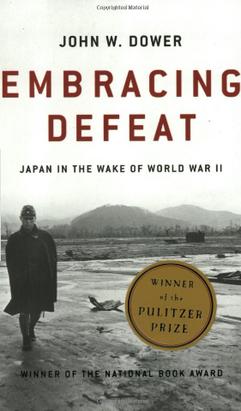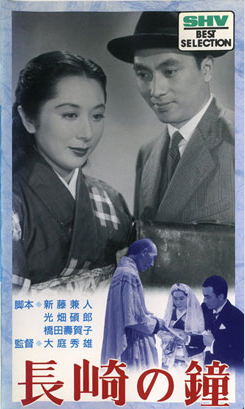
MIT OpenCourseWare is an initiative of the Massachusetts Institute of Technology (MIT) to publish all of the educational materials from its undergraduate- and graduate-level courses online, freely and openly available to anyone, anywhere. The project was announced on April 4, 2001, and uses Creative Commons Attribution-NonCommercial-ShareAlike license. The program was originally funded by the William and Flora Hewlett Foundation, the Andrew W. Mellon Foundation, and MIT. MIT OpenCourseWare is supported by MIT, corporate underwriting, major gifts, and donations from site visitors. The initiative inspired a number of other institutions to make their course materials available as open educational resources.
Herbert P. Bix is an American historian. He wrote Hirohito and the Making of Modern Japan, an account of the Japanese Emperor and the events which shaped modern Japanese imperialism, which won the Pulitzer Prize for General Nonfiction in 2001.
Richard Read is a freelance reporter based in Seattle, where he was a national reporter and bureau chief for the Los Angeles Times from 2019 to 2021. A two-time Pulitzer Prize winner, he was a senior writer and foreign correspondent for The Oregonian, working for the Portland, Oregon newspaper from 1981 to 1986 and 1989 until 2016.

Tom Reiss is an American author, historian, and journalist. He is the author of three nonfiction books, the latest of which is The Black Count: Glory, Revolution, Betrayal, and the Real Count of Monte Cristo (2012), which received the 2013 Pulitzer Prize for Biography or Autobiography. His previous books are Führer-Ex: Memoirs of a Former Neo-Nazi (1996), the first inside exposé of the European neo-Nazi movement; and The Orientalist: Solving the Mystery of a Strange and Dangerous Life (2005), which became an international bestseller. As a journalist, Reiss has written for The New Yorker, The Wall Street Journal, and The New York Times.
The Pulitzer Prizes for 2000 were announced on April 10, 2000.
Constitution Memorial Day is a public holiday in Japan. It takes place on May 3 in celebration of the enactment of the 1947 Constitution of Japan. It is a part of the collection of holidays known as Golden Week.
Leon Frank Litwack was an American historian whose scholarship focused on slavery, the Reconstruction Era of the United States, and its aftermath into the 20th century. He won a National Book Award, the Pulitzer Prize for History, and the Francis Parkman Prize for his 1979 book Been In the Storm So Long: The Aftermath of Slavery. He also received a Guggenheim Fellowship.

David Brion Davis was an American intellectual and cultural historian, and a leading authority on slavery and abolition in the Western world. He was a Sterling Professor of History at Yale University, and founder and director of Yale's Gilder Lehrman Center for the Study of Slavery, Resistance, and Abolition.

Our Job in Japan was a United States military training film made in 1945, shortly after World War II. It is the companion to the more famous Your Job In Germany. The film was aimed at American troops about to go to Japan to participate in the 1945–1952 Allied occupation, and presents the problem of turning the militarist state into a peaceful democracy. The film focused on the Japanese military officials who had used the traditional religion of Shinto, as well as the educational system, to take over power, control the populace, and wage aggressive war.
OpenCourseWare (OCW) are course lessons created at universities and published for free via the Internet. OCW projects first appeared in the late 1990s, and after gaining traction in Europe and then the United States have become a worldwide means of delivering educational content.
Richard H. Minear is a retired Professor of History at the University of Massachusetts Amherst. He taught a survey course of Japanese history and a Hiroshima seminar. Minear got his Ph.D. from Harvard in 1968. He is best known for his book about the Tokyo War Crimes Trials, Victors' Justice. He has lived in Japan for many years and translated Japanese works into English.

The Massachusetts Review is a literary quarterly founded in 1959 by a group of professors from Amherst College, Mount Holyoke College, Smith College, and the University of Massachusetts Amherst. It receives financial support from Five Colleges, Inc., a consortium which includes Amherst College and four other educational institutions in a short geographical radius.
The Rising Sun: The Decline and Fall of the Japanese Empire, 1936–1945 is a nonfiction history book by John Toland, published by Random House in 1970. It won the 1971 Pulitzer Prize for General Nonfiction. It was republished by Random House in 2003.

Embracing Defeat: Japan in the Wake of World War II is a history book written by John W. Dower and published by W. W. Norton & Company in 1999. The book covers the difficult social, economic, cultural and political situation of Japan in the aftermath of World War II and the nation's occupation by the Allies between August 1945 and April 1952, delving into topics such as the administration of Douglas MacArthur, the Tokyo war crimes trials, Hirohito's controversial Humanity Declaration and the drafting of the new Constitution of Japan.

The book Shattered God: A Diary of a Demobilized Soldier is a diary of the events that started with the surrender of Japan at the end of World War II, written by Watanabe Kiyoshi. It was published by Iwanami Shoten Publishing in 1983, after the author's death.
Visualizing Cultures is an educational website intended to tie "images and scholarly commentary in innovative ways to illuminate social and cultural history." The project describes itself as a "gateway to seeing history through images that once had wide circulation among peoples of different times and places" and investigates history as "how people saw themselves, how they saw others including foreigners and enemies, and how in turn others saw them."

Christian Gerard Appy is a professor of history at the University of Massachusetts Amherst. He is widely known as a leading expert on the Vietnam War experience. The most recent of his three books on the subject is American Reckoning: The Vietnam War and Our National Identity. It explores the war's impact on American politics, culture, and foreign policy from the 1950s to the Obama presidency.
The New Press is an independent non-profit public-interest book publisher established in 1992 by André Schiffrin and Diane Wachtell, publishing many books with a left-wing political viewpoint.

The Bells of Nagasaki is a 1950 film adaptation of the 1949 book of the same name by Takashi Nagai. It was directed by Hideo Ōba and was released September 23, 1950.










